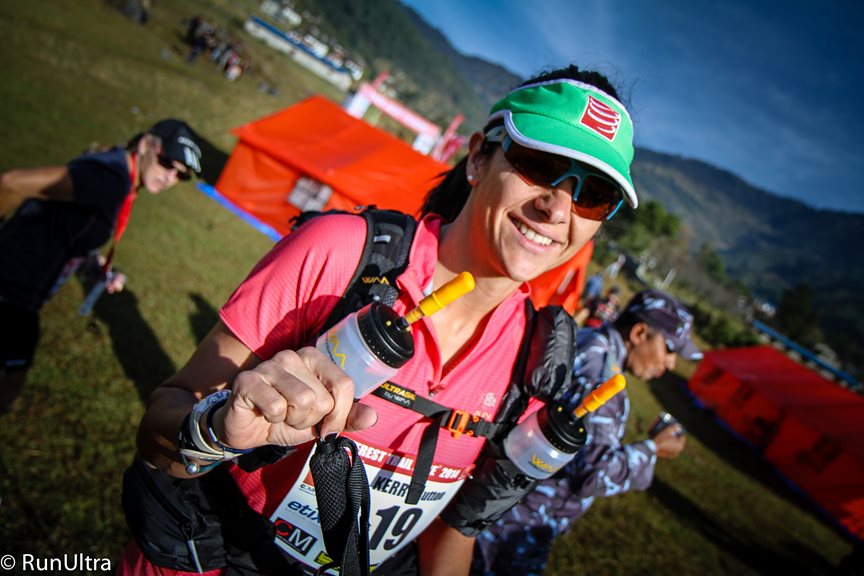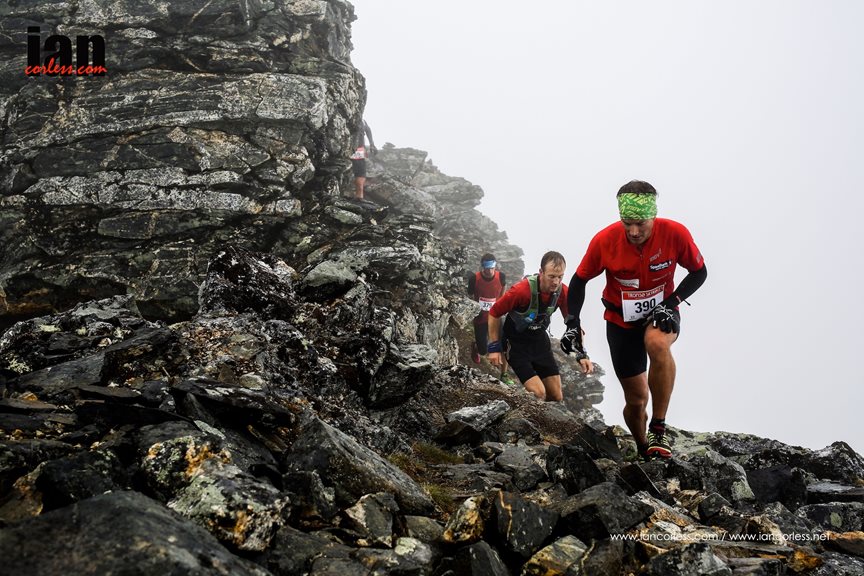Last updated: 16-Aug-18
Written by Sports Dietician Rin Cobb
Figuring out how much and what to eat for an ultra, let alone a multi-day race, can sometimes appear as challenging as running the event itself. Ultra nutrition is what I get asked about time after time, usually after an ultra that hasn’t quite gone to plan and ended up in a DNF. With all the diet fads, products and self proclaimed do’s and don’ts, it’s no wonder a lot of runners don’t quite know what to pack so here’s some pointers to guide you in the right direction.
Firstly check out the logistics of the race; is it self-sufficient and how many days is it. This may seem quite obvious, but I still remember on the coach out to the start of a weeklong race, one competitor only having enough food for six days. Checkout your checkpoints; how many will there be, what’s the distance between them and what will be provided so you can factor this in too.
Secondly, don’t leave planning your food to the last minute. Make a plan, try it out and make sure it works for you both practically and nutritionally during your training runs. If you’re off to foreign climes for your race, think about logistics. Will you be able to source your food locally or is it best to stock up before you go.
A lot of runners get focused on calories. If you are doing anything longer than a week, you need to be thinking about how to make the most of your calorie intake, but for anything less, fuelling yourself solely on Pepperami’s and Babybel’s is not going to get you to the finish line. Logically, you may think these high calorie foods are what you need to run an ultra. In fact, their high-energy content comes from fat and it’s carbs you need to be fuelling yourself with. You’ll run out of these well before your body fat stores waste away. For more snack ideas, check out my article on food to go.
For those self-sufficient races, the ability to pack the right stuff in as little weight as possible can be your first hurdle. Accept the fact that your food will take up most of the space in your pack and add the most weight. If you can do that, you’ll save yourself a lot of time and stress when deciding on your plan. If you get too fixated on saving that extra 100g, you may well find yourself cutting out too much and compromising on foods that will not only keep your muscles fuelled but your brain too. Too often the psychological power of food is overlooked and believe me that crumpled packet of crisps or melted mars bar can be the difference between pulling out at the penultimate checkpoint and spurring you on to the finish line.
Of course, if you’re new to self-sufficiency; concerns about starvation may lead you to overcompensate. Rather than lugging around last night’s Indian take-away, onion bajis and all (you know who you are), try to be realistic about how much and what you will actually be able to eat. Many choose freeze-dried meals as they’re seen as an easy option. Again, just because one meal has an extra 20kcals, don’t pack that flavour only for the week, otherwise you’ll be bartering by breakfast on day 2. For those of you who aren’t so keen on the taste, or price, there are some other low weight options that can provide the nutrition you need.
|
Breakfast |
Snacks |
Dinner |
|
Instant porridge sachets |
Cereal/granola bars |
Instant noodles |
|
Granola + milk powder/Complan |
Flapjacks |
Pasta & sauce |
|
Bagel/brioche + Nutella/jam/cheese |
Nuts/seeds/dried fruit |
Couscous/rice sachets |
|
|
Mini cheeses |
Jerky/salami sticks/tuna sachet |
|
|
Jerky |
Hot choc/Horlicks |
|
|
Chocolate bars |
|
|
|
Sweets |
|
Powders are particularly useful where weight is concerned, as they provide much more bang for your buck. These can be sports drinks, powders for carbs, and electrolytes including Torq Energy, High 5 Energy Source, SIS Go Energy. There are also high-energy powders such as Complan and Build Up, or recovery powders if doing multiday races. Being able to recover, refuel and rehydrate between stages will give you the best chance to perform day after day and a recovery drink such as For Goodness Shakes, SIS Rego or High 5 Protein Recovery can be a useful addition to your race rations.
Some additional food for thought is caffeine as it can help improve physical endurance, reduce fatigue and enhance mental alertness and concentration; all of which you’ll feel at some point during an ultra. Most sports products, be it drinks, sweets, gels or bars have a caffeine option but good old fashioned tea and coffee can be just as effective, so having a few of these options for those low morale moments can be advantageous but try to aim for <500mg per day. Ginger is another potential ally as it can help against nausea, which many an ultra runner has been struck down with. Then sweets, biscuits and tea are good, practical racing options.
Finally, factor in a variety of foods both sweet and savoury and above all else take a range of flavours. You never know exactly how your body is going to respond to the race environment, particularly if it’s your first ultra or under more extreme conditions than you’ve trained for. Believe me you may love that peanut butter energy bar on training runs but come race day, there’s nothing worse than finding you can’t stomach it and then realising that’s all you’ve got for a week long race. Having flexibility in your food plan will help you tackle any obstacle, be it loss of appetite, taste fatigue, hungry tent mates or even grumpiness.
Disclosure:
We use affiliate links in some of our reviews and articles. This means that if you purchase an item through one of these links we will earn a commission. You will not pay more when buying a product through our links but the income will help us to keep bringing you our free training guides, reviews and other content to enjoy. Thank you in advance for your support.






